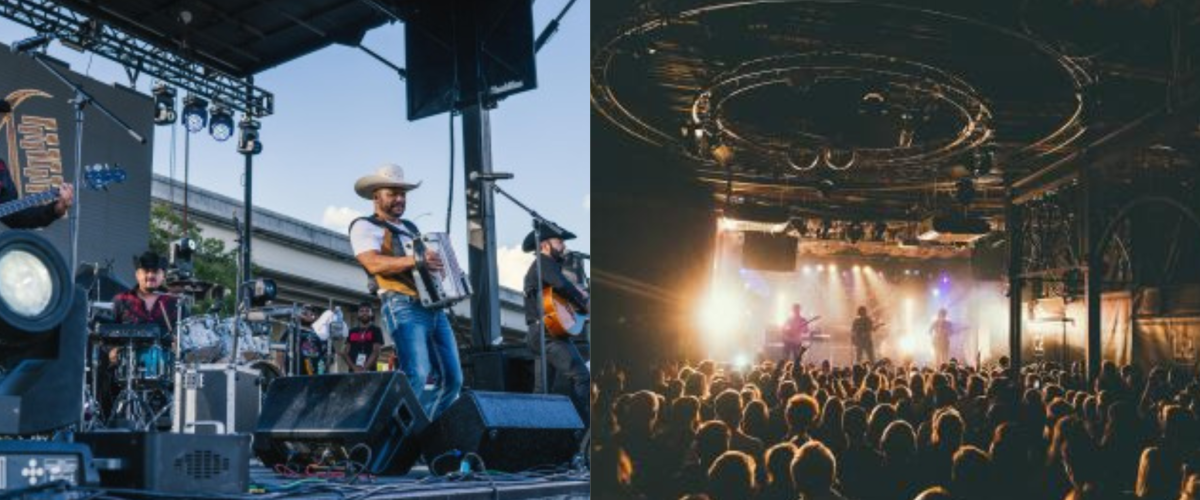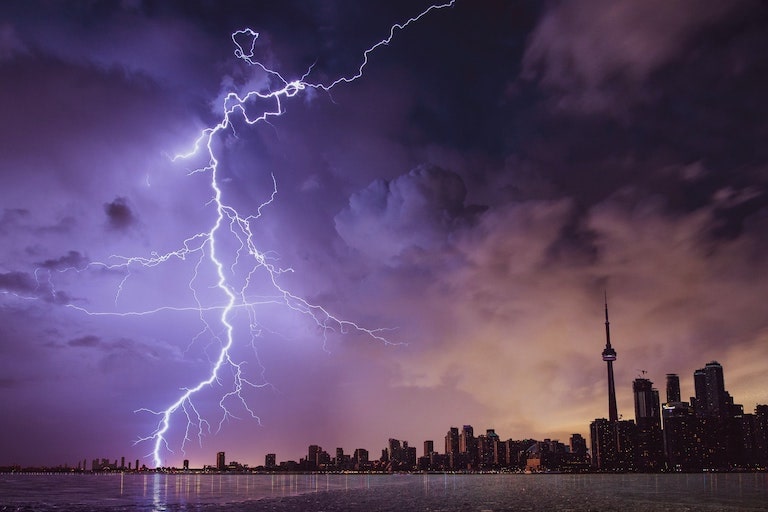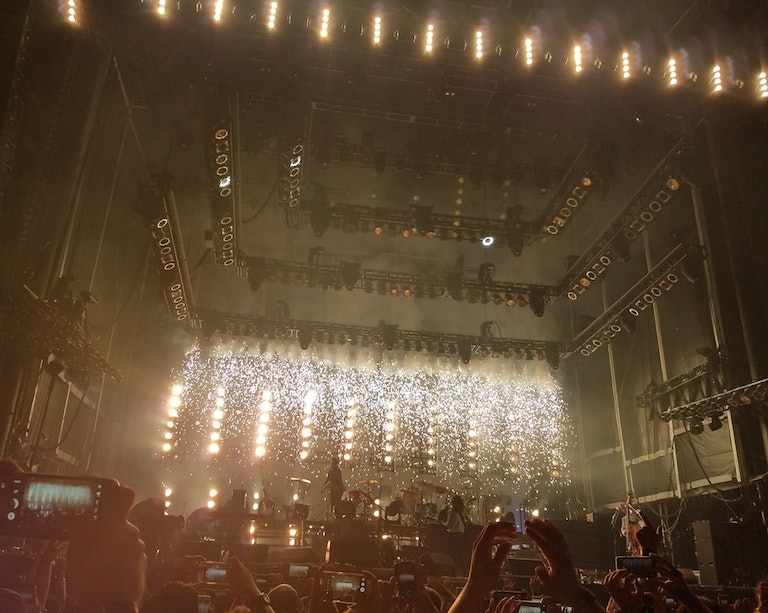When planning a live event, choosing the right venue is pivotal to its success. As an event organizer, you have various options to choose from when selecting a venue. Hosting your event at an appropriate venue can elevate and enhance your event. However, to optimize your event and produce the best results, knowing what exactly to look for in a venue is important. One of the most important decisions you need to make when producing events is whether to choose an outdoor or indoor venue. Each option has its own strengths and weaknesses that can significantly affect the overall experience of your event. Below, we’ll look at the pros and cons of outdoor and indoor venues in order to make an informed decision on what would work best for your event.
Outdoor Venues
When choosing a venue for your event, selecting an outdoor venue may be a compelling option. Depending on what kind of event it is, an outdoor venue may be a perfect fit, especially if it’s a festival or large-scale community event. The flexibility and ambiance of an outdoor venue are appealing, but the extra steps necessary to ensure an enjoyable experience for your attendees may be a hassle. When choosing an outdoor venue, it’s important to consider the event vision and whether or not an outdoor space aligns with what the event is all about. Let’s dive into the pros and cons of choosing an outdoor venue to really understand if choosing an outdoor venue is the right choice.
Pros
- Flexibility: The flexibility and versatility of the space is definitely a major advantage of an outdoor venue. As an event organizer, selecting an outdoor venue can open the door to additional options for your event. The open space allows you to utilize creative options to enhance your event and choose creative locations to host it. Because you don’t have to worry about running out of space and are not limited to the restraints of an indoor venue, you can utilize the outdoor space and add vendors, food carts, games, etc. These possibilities to engage your audience in creative ways and make an enjoyable and memorable experience for your attendees is a definite pro. For larger festivals, this is definitely the best option, since you have all that open-air space to add different activations and activities for your festivalgoers to enjoy. There are also so many outdoor venue options for any size event. From local parks to larger fields, the options are endless.
- Ambiance and atmosphere: Additionally, an outdoor venue can certainly create and add a festive and warm atmosphere and ambiance to your event. Under good weather conditions, an outdoor venue can elevate an event with natural light and warmth. Moreover, an outdoor event can be scenic and relaxing, promoting audience turnout and ticket sales (if it’s a ticketed event.) People love outdoor activities in the Summer months, making an outdoor event a perfect outing and an incentive to drive attendance. Depending on the size of your event and the type of outdoor space, an outdoor venue can create an intimate performance space that may be otherwise unattainable in an indoor venue.
- Capacity: While indoor venues have a capacity limit, outdoor venues are more flexible. When choosing a venue, consider the event size and what the prospective capacity might look like. If it’s a larger-scale event, and an indoor venue is too limiting, an outdoor space may just be the way to go. Again, with fewer limitations on capacity and more room to build your event, an outdoor venue can accommodate a larger audience. With this flexible space and capacity limit, you may have more free reign to create a floor plan to elevate the live event experience and really customize how you want the event to flow and feel.
Cons
- Weather: One major disadvantage of hosting your event at an outdoor venue is that it’s so dependent on the weather. If you happen to hold your event on a lousy, rainy day, that could compromise the whole event and lead to postponement or cancellation. There are ways to combat this worst-case scenario– be prepared and do a risk assessment. Performing a risk assessment allows you to identify any potential risks and take the necessary steps to prevent them or put mitigation plans in place. While weather can be unpredictable, use your discretion when choosing an outdoor venue. Don’t choose an outdoor venue in a town or city that is historically rainy, or in a season that is susceptible to poor weather conditions. Additionally, put a backup plan in place. If the outdoor venue is an established venue, ask the venue managers what the venue’s rain plan is and if there is a large enough alternative space indoors to relocate. If it’s a DIY outdoor venue, create a backup plan yourself, and prepare to have an alternate indoor venue to move the event in case of poor weather.
- Restrooms: The lack of restrooms at an outdoor venue can be another huge drawback for event goers. It’s also a significant additional expense for event organizers if you need to rent portable restrooms. As event organizers, you want your attendees to have the most stress free experience as possible, so figuring out these small details is key. Asking if the outdoor venue has any restrooms onsite, or figuring out how to source portable restrooms is important. Additionally, having a grasp on the prospective audience size will aid you in figuring out how many portable restrooms you need to provide. Keep accessibility in mind, and how far these restrooms are from the main performance area. For those who need certain accessibility accommodations, restrooms that are not nearby may provide an issue, so make sure to plan accordingly to make these accommodations.
- Noise Ordinances and Permits: For outdoor venues, you need to also consider the impact on the surrounding community. There may be certain laws and ordinances in place that need to be known when planning your event. When is the curfew? Is there a noise ordinance in the neighborhood? Can you have amplified noise and music, or does it have to be only acoustic? Also, don’t forger to research the fire and safety codes and any permits you need to obtain for an outdoor event. Every location is different, so having an understanding of the rules and regulations is critical. For outdoor events at private entertainment venues, you might not need to obtain any permits. However, if you’re producing a DIY live event at an outdoor venue, like at a local park, you must acquire the right permits in order to hold the event.
- Electrical and Technical Production Needs: The music and entertainment are the centerpiece of your event. Making sure a live performance is feasible at the outdoor venue as it is or what is needed so the event can take place is important as you choose a location. Determining what technical equipment is needed, and if there’s adequate electrical service for outside events, can make or break the event budget. What specific equipment is needed? Do you need to hire local production contractors to install and oversee the stage, lighting and sound rigging? Contrast that with an indoor venue that has all these production and technical elements already in place. It’s up to the event organizer to sort out these issues and put into place any production services needed. Depending on the kind of event and what will take place, you may not need specific equipment and staffing. If you are planning performances with amplified sound, the event organizer must provide for all the technical requirements needed by those performing.
Indoor Venues
With outdoor venues requiring these additional considerations, choosing an indoor venue for your live event may be more practical and convenient. While indoor venues offer more control and reliability, with no dependability on weather, they also may lack the ambiance and atmosphere of an outdoor event. Let’s look at the pros and cons of choosing an indoor venue to see if an indoor venue is best for your event.
Pros
- On-Site Power and Production Needs: An indoor venue has all the power and production requirements already in place. With a history of producing live events and concerts, an indoor venue would stage, lighting, sound, and control boards. Each venue usually has its own technical specs sheet they can provide, including any inhouse backline equipment, e.g., microphones, drums, and amps. Since you would have to outsource all this equipment and technical requirements at an outdoor venue, this is a definite pro of choosing an indoor venue.
- Decor Options: With an indoor venue, you have the ability to customize the space to fit the event. Unlike an outdoor venue, where there are no walls to hang any decor, and where wind and weather may play havoc, an indoor venue gives you the option to design the space to fit the event. Not having to worry about the weather ruining decorations is a definite pro of an indoor venue. The freedom and option to add decorations to the space to enhance the event allow you to creatively upgrade the ambiance and atmosphere, as well.
- Operate Year Round: One of the most significant advantages of an indoor venue is that they operate year-round, and there’s no dependency on the weather. While an outdoor venue introduces a plethora of risks and requires the right weather to be successful, indoor venues are a safer option. For event organizers, the safety and security of an indoor venue is attractive, and being able to not have to worry about the weather relieves any stress or worries that an outdoor venue may cause.
- Control: Overall, an indoor venue offers an event organizer more control over mostly every aspect of their live event. As previously mentioned, an indoor venue is climate controlled. You don’t need to worry about weather disrupting or canceling your event, nor do you have to worry about outsourcing the production needs, portable restrooms, etc needed for an outdoor event. An indoor venue gives an event organizer more time to focus on other aspects of the event, like marketing, rather than focusing on all the extra logistical and technical needs of an outdoor event.
Cons
- Capacity and Lack of Airflow: Compared to an outdoor venue, which has more capacity flexibility, an indoor venue is more limited and restricted. Each venue has a legally defined capacity limit, and depending on the projected turnout of your event, some venues may not be suitable. An outdoor venue has more flexibility and wiggle room when it comes to capacity. Choosing the best suited indoor venue or your event requires you to really have a grasp on the projected turnout of your event. You can’t go with a venue that’s too small where the number of tickets is very limited or a venue that’s too big where you can’t sell enough tickets and the room feels empty. This can make the venue choosing a tedious and difficult process. Additionally, where outdoor venues provide air flow and an appealing atmosphere with appealing scenery, an indoor venue will lack those elements. The aesthetic differences may impact the event organizers’ decision to choose an indoor venue versus an outdoor venue.
Availability: Additionally, indoor venues have more limits on their availability compared to many outdoor possibilities. They may not have many open days to host your live event and may book up quickly during certain times of the year. If you have a specific indoor venue in mind for your event, plan ahead to make sure you can secure a dates you need. Moreover, make sure you have a couple venues in mind, and some flexibility regarding dates that would work for your event in the case that one venue has a lack of availability.
- Parking and Accessibility Limitations: Indoor venues may have parking issues. Do they have their own parking or are event goers left to find public parking? What will it cost to park? Issues with parking may turn away potential attendees who might have purchased tickets if the parking situation had been free and convenient. Indoor venues may also not be the most accessible places for those who need certain needed accommodations. When choosing an indoor venue to host your event, consider the parking situation and whether or not there are spaces to accommodate those with accessibility needs.
Conclusion
There are several baseline factors to consider when choosing a venue: where the venue is located, time of year for the event, venue capacity, local production capabilities, expected audience turnout, parking issues, accessibility accommodations, etc. These are just some of the factors to keep in mind when choosing a venue for your event, but it ultimately comes down to the type of event and turnout and what kind of venue is best suited for it. Choosing whether or not you want to host your event at an outdoor or an indoor venue is an important decision to make as an event organizer. Be sure to consider these pros and cons when choosing what venue is best for your event!
Need help with the decision process? Let TSE’s event production and management team help you with the planning and implementation process for your events. Take the stress out of your event by working with a trusted partner.
Related Posts:
- Outdoor Concert Weather Planning
- Producing Music Festivals: How to Choose the Right Venue
- Outdoor Event Production: 5 Critical Safety Concerns



 Availability: Additionally, indoor venues have more limits on their availability compared to many outdoor possibilities. They may not have many open days to host your live event and may book up quickly during certain times of the year. If you have a specific indoor venue in mind for your event, plan ahead to make sure you can secure a dates you need. Moreover, make sure you have a couple venues in mind, and some flexibility regarding dates that would work for your event in the case that one venue has a lack of availability.
Availability: Additionally, indoor venues have more limits on their availability compared to many outdoor possibilities. They may not have many open days to host your live event and may book up quickly during certain times of the year. If you have a specific indoor venue in mind for your event, plan ahead to make sure you can secure a dates you need. Moreover, make sure you have a couple venues in mind, and some flexibility regarding dates that would work for your event in the case that one venue has a lack of availability.


